Table Of Contents
What exactly is a podcast, you ask? Well, it’s our pleasure to shed some light on this increasingly popular medium.
In simple terms, a podcast is an episodic series of digital audio files that users can download and listen to at their leisure, primarily focusing on specific topics or themes.
As avid listeners and creators of podcasts, we understand the appeal of this versatile entertainment form. So why are podcasts becoming such a hit?
It’s all about accessibility and the endless possibilities of content that make them an attractive option for both listeners and creators alike.
If you’re new to podcasts or just curious, we invite you to dive into this fascinating world and discover the endless range of topics and stories waiting to be heard.
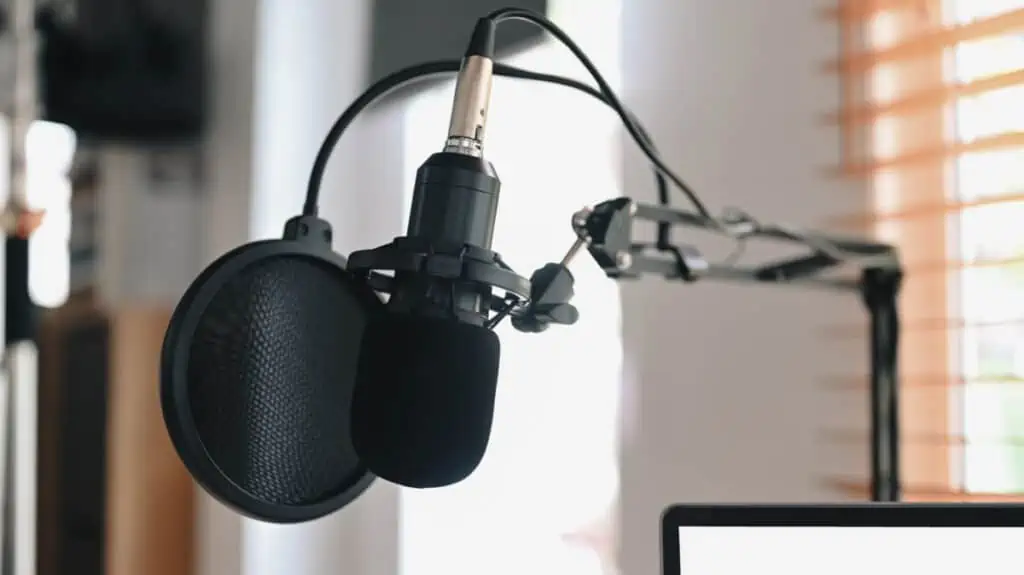
What Is a Podcast?
The term podcasting or podcast is simply an audio program that can be listened to on-demand, making it quite similar to radio shows, but with a major difference: it’s available whenever you want it!
We usually create podcasts as a series of audio episodes; all centered around a particular topic or theme. Our digital audio files are stored and made available online for downloading or streaming. You can subscribe to a podcast with an app on your computer or mobile device and listen to episodes anytime through headphones, car audio systems, or speakers.
One of the fascinating aspects of podcasts is the variety of content we can find. There are popular podcasts covering all kinds of subjects, including cycling, startups, politics, sports, entertainment, horror, and gaming.
This means we can always find something interesting to listen to and learn from, whether on the go or relaxing at home.
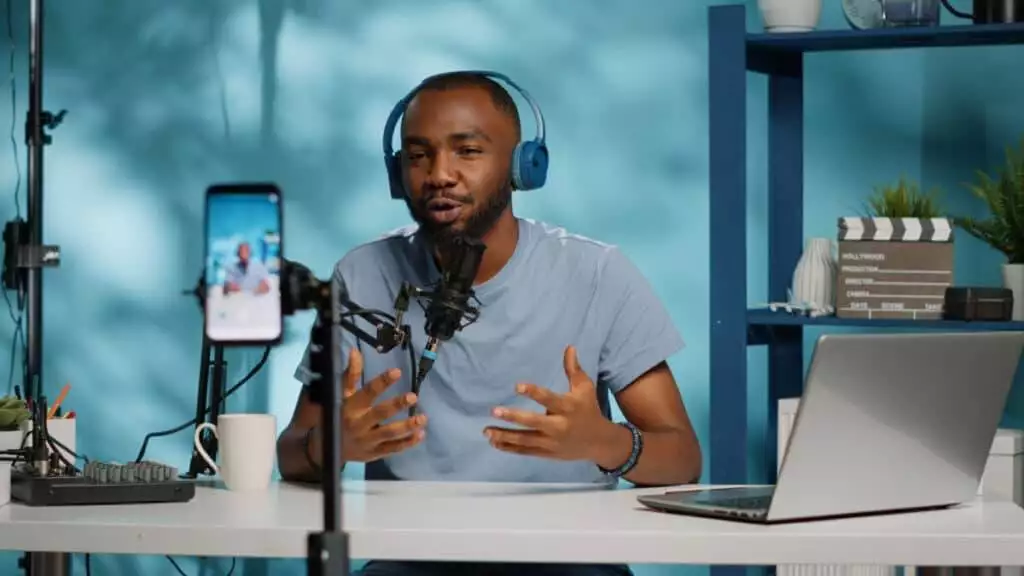
How Do They Work?
We love podcasts because they are versatile and convenient to access. But how do they work?
Podcasts are essentially a series of audio episodes, often focused on a particular theme or topic. These episodes are stored with a podcast hosting company, and you can access them via your favorite podcast app or the internet.
To start our podcast journey, we subscribe to a podcast using an app on our phone or computer. By doing this, we receive notifications when new episodes are released. We can then listen to these episodes at our leisure, whether through headphones, in the car, or on speakers.

Types of Podcasts
In this section, we will discuss various podcast formats that cater to different listener preferences.
1. Conversational
Conversational podcasts are a popular genre where hosts casually discuss various topics. These podcasts often feature interviews or panel discussions and cover various subjects, such as politics, sports, pop culture, and more.
2. Hybrid
Hybrid podcasts combine different podcast formats to provide a unique listening experience. For example, a podcast may feature interviews with experts, followed by a roundtable discussion, and end with a segment that features storytelling or analysis.
3. Monologue
Monologue podcasts involve a single host who shares their thoughts, opinions, or expertise on a specific topic. Often used for educational or inspirational content, these podcasts allow hosts to engage directly with their audience and create a more intimate connection.
4. Non-fiction Storytelling
Non-fiction storytelling podcasts focus on the presentation of true events or experiences. These podcasts often provide a deep dive into a single story or topic across multiple episodes, offering in-depth reporting, analysis, and storytelling that captivate listeners. Examples include investigative journalism or historical documentaries.
5. Repurposed
Repurposed podcasts use existing content, such as speeches, interviews, or other media, and repurpose them into podcast format. This allows listeners to access previously unavailable content in a more convenient and portable format.
6. Theatrical
Theatrical podcasts are audio dramas that use scripted fiction to tell stories. These podcasts showcase the power of storytelling through voice acting, sound effects, and immersive storytelling techniques. They transport listeners into different worlds, exploring various genres, from science fiction to mystery to romance.
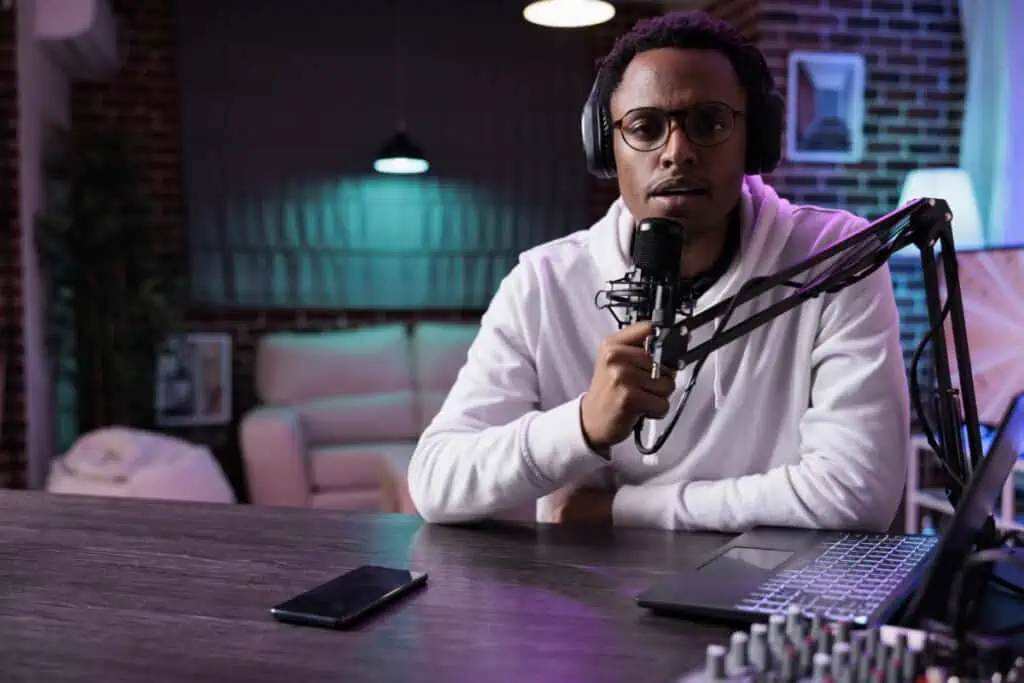
Advantages and Disadvantages Of Making A Podcast
Advantages
We believe that one of the primary advantages of podcasting is convenience and the direct connection with the audience.
Listeners can tune in during free time, such as workouts or commutes, without worrying about distractions. Moreover, podcasts are portable, making it easier for listeners to consume content on the go.
Additionally, we find personalized content in podcasting to be a major advantage. This allows us to tailor our content to our target audience’s specific interests and preferences.
Another benefit is that podcasts can help us cut costs since they require less equipment and production costs than other media forms.
Disadvantages
Accessibility is one of the potential downsides of podcasting. Accessing and consuming podcasts may be an issue for some audience members due to technical limitations or lack of internet access.
Another drawback we face is the lack of interactivity of podcasts. Unlike meetings, conference calls, or group text chats, podcasts don’t allow listeners to ask questions or offer real-time input.
In summary, while there are clear advantages to making a podcast, we need to be aware of and address the potential disadvantages to create the best possible content for our listeners.
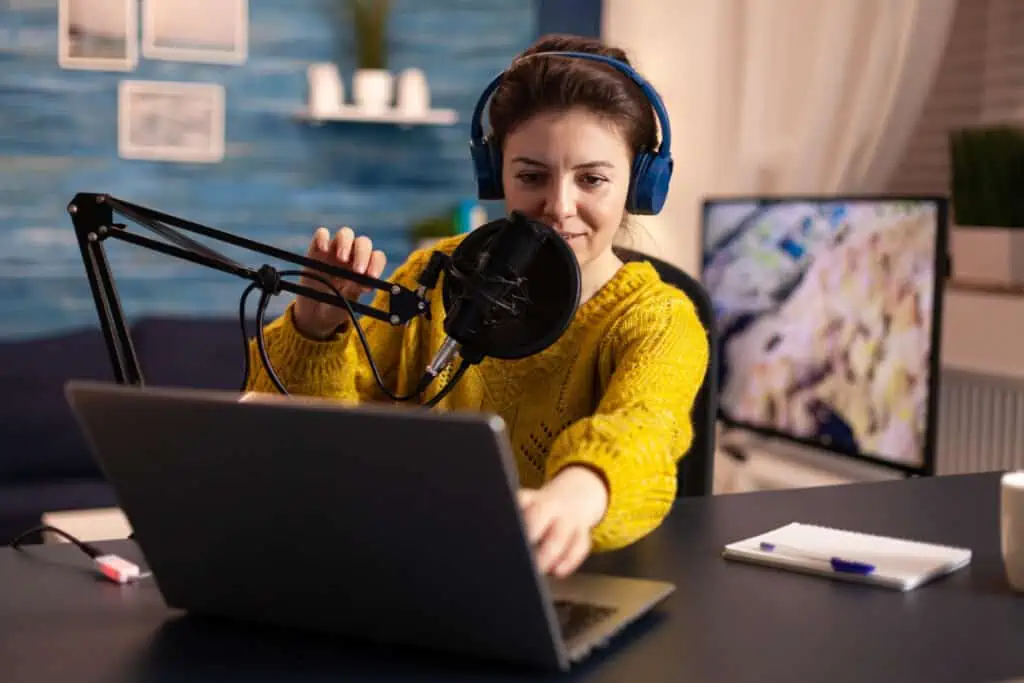
Starting a Podcast
If we want to start our own podcast, there are a few things we should consider, such as:
- Choosing a topic and format: It’s essential to select a subject we’re passionate about and define the format that would best fit our content.
- Podcasting equipment: A good-quality microphone is critical for clear audio, but we don’t need to break the bank; several affordable options are available.
- Recording software: We can find various recording software options at different budget levels, such as Audacity (which is free) or more advanced options like Adobe Audition.
- Editing: Once our audio is recorded, we’ll need to edit it for clarity, pacing, and overall quality, using software like Audacity, GarageBand, or other audio editing programs.
- Publishing: Finally, we must choose a podcast hosting platform to store and distribute our episodes and submit our podcasts to directories like Apple Podcasts, Spotify, and Google Podcasts.
Remember, even if we’re new to podcasting, plenty of resources and guides are available to help us learn and grow in our endeavors.

Platforms and Apps
When diving into podcasts, knowing about the different platforms and apps available for listeners is important.
This section will discuss Apple Podcasts and some podcast apps for accessing your favorite shows.
1. Apple Podcasts
Apple Podcasts is a great option to listen to podcasts on your iPhone or other Apple devices. How do we access Apple Podcasts? It’s easy: the app comes pre-installed on most Apple devices. From your Apple device, you can browse and subscribe to numerous shows, ranging from popular titles to niche interests.
What about other devices? Don’t worry, you can also access Apple Podcasts from your computer by using the iTunes software. Accessing and managing your podcast subscriptions on different devices is simple with Apple Podcasts, thanks to iCloud syncing.
2. Podcast Apps
For those who prefer using other podcast apps, many choices are available for both iOS and Android. One well-regarded option is the Pocket Casts, which offers a sleek interface and cross-platform syncing, making it easy to sync your podcasts between devices.
How do we access Podcast Apps? Download your preferred podcast app from the App Store (for iOS devices) or Google Play Store (for Android devices). Once downloaded, you can search for your favorite shows, manage your subscriptions, and customize your listening experience.
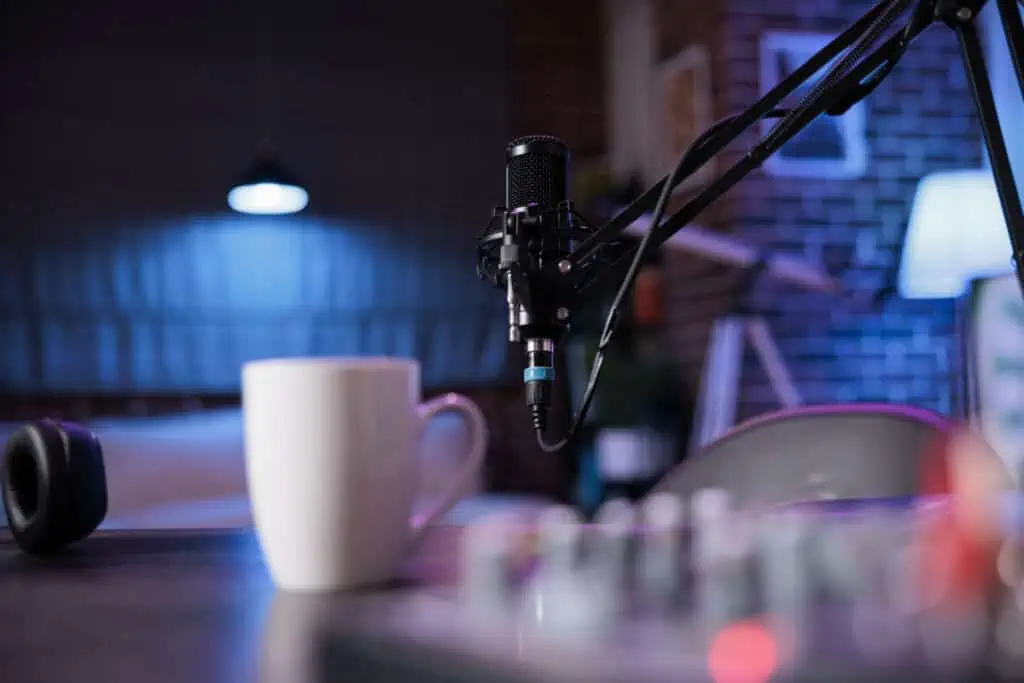
Listening and Engaging
Listening to Podcasts
We love listening to podcasts as they offer a range of content, from talk shows to informative stories, that are enjoyable in different situations. Podcasts resemble familiar forms of media like radio or TV but also provide completely new and unique content thanks to the creative freedom podcasting allows. They engage our minds, make us think, and cater to various learning needs, including those with visual impairments or learning disabilities like dyslexia.
Connecting with Favorite Podcasters
One of the best parts of being a podcast listener is connecting and engaging with our favorite podcasters. This interaction goes beyond just listening; it evolves into a truly interactive experience.
Responding to our favorite podcasters makes the audience feel more involved and contributes to building loyalty and dedication.
Here are some ways we can interact with podcasters:
- Social media: Following our favorite podcasters on social media platforms (Twitter, Instagram, Facebook, etc.) allows us to stay updated on new episodes and engage in discussions.
- Email newsletters: Subscribing to newsletters helps us stay informed about the latest episodes, behind-the-scenes updates, and opportunities for direct engagement.
- Reviews and ratings: Providing feedback through reviews and ratings support our favorite podcasters and helps them improve their content and reach new audiences.
- Live events: Attending live recordings, workshops, or networking events can create a more personal connection and foster long-lasting relationships between listeners and creators.
Remember, nurturing a connection with our favorite podcasters makes our listening experience more enjoyable and helps us support the creators behind the content we love.
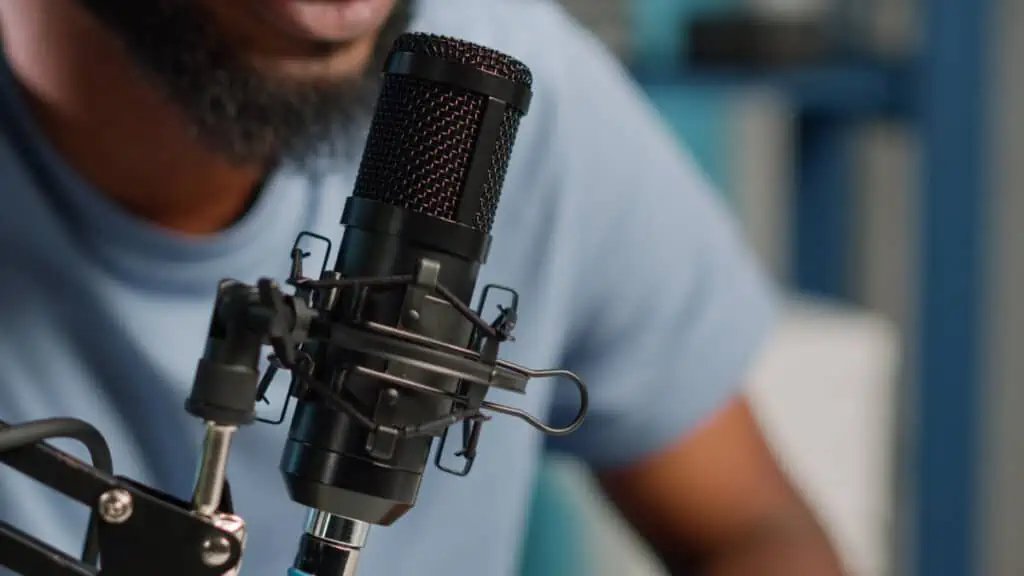
Examples Of Well Known Podcasts
In our journey to understand podcasts, we’ve discovered several well-known examples that showcase diverse formats and styles.
Let’s dive into a few popular podcast examples that reflect the different types of podcasts.
- Stuff You Should Know: This conversational podcast features hosts Chuck and Josh, who educate each other and the audience about a variety of general interest topics. Their informal style makes listening feel like joining a conversation between two friends.
- Serial: A nonfiction storytelling podcast that goes deep into a single topic over an entire season. It quickly became famous for its investigative storytelling and captivating approach to true stories.
- Business Wars: Similar to Serial, this podcast also uses season-based storytelling but focuses on the rivalry between major corporations. Each season covers a different pair of business giants battling for market domination.
- Interview podcasts are also quite popular, with shows like The Joe Rogan Experience, where the host engages in long-form interviews with guests on various topics.
With so many podcast formats out there, it’s no surprise that the popularity of podcasting continues to grow.
Whether you enjoy solo monologues, panel discussions, or educational content, there’s a podcast for everyone.
Related Posts
FAQs
What Is The Main Purpose Of A Podcast?
Podcasts serve various purposes, such as entertainment, education, and news updates. They offer listeners a convenient way to engage with and consume content on various topics.
Should I Make A Podcast?
Creating a podcast could be a great way to share your knowledge and connect with an audience if you have a unique perspective, expertise, or passion for a topic.
Why Are Podcasts Popular?
Podcasts are popular due to their versatility and accessibility. Listeners can tune in while performing everyday tasks, such as commuting or working out, allowing them to consume content without requiring undivided attention.
What Format Are Podcasts?
Podcasts can be found in many formats, from conversational interviews to educational lectures and even storytelling or news reporting. This makes them appealing to a wide range of listeners with diverse interests.
What Is The Difference Between Audio Vs. Video Podcasting?
Audio podcasts use only sound files, while video podcasts incorporate both audio and video elements. Audio podcasts are more common, as they are easier to produce and consume on the go, but video podcasts can offer a more engaging visual experience.
Are Podcasts Free To Listen To?
Most podcasts are free to listen to; however, some may require a subscription or offer premium content for a fee. Many podcast platforms, such as Apple Podcasts and Spotify, provide free access to a vast library of podcast content.
How Do I Listen To A Podcast?
You can listen to a podcast through popular streaming platforms like Apple Podcasts, Spotify, or Google Podcasts. Search for the desired podcast, subscribe, and download or stream episodes to your device.
How Do Podcasts Make Money?
Podcasts can generate revenue through a variety of sources, such as sponsorships, advertising, listener donations, or premium content subscriptions. Successful podcasters often build a loyal audience to support their show financially.
How Do I Start A Podcast?
To start a podcast, you will need a few things: a clear idea of your podcast, recording and editing equipment, and a good podcast hosting platform. Once you have recorded your episodes, you can upload them to your hosting platform and distribute them to various podcast directories to reach a larger audience.
How Do I Listen To Podcasts?
There are several ways to listen to podcasts. You can listen through a podcast app on your mobile device, listen through a podcast website, or access them through a podcast directory. Once you find a podcast you want to listen to, you can usually listen directly from the website or download the episode to listen to later.
What Are Some Popular Podcasts?
Popular podcasts vary depending on personal interests and preferences, but some of the most popular ones currently include u0022Serial,u0022 u0022Stuff You Should Know,u0022 u0022This American Life,u0022 u0022Radiolab,u0022 and u0022The Daily.u0022
What Is A Podcast Episode?
A podcast episode is a single installment of a podcast series. It can range in length and cover a variety of topics. Many podcasts release new episodes on a regular schedule, such as weekly or biweekly.
What Are Some Types Of Content That Can Be Found On Podcasts?
Podcasts cover a wide range of topics and types of content. Some of the most popular types of podcasts include interview-style shows, educational podcasts, fiction podcasts, news and current events podcasts, and comedy podcasts.
How Do I Find New Podcasts To Listen To?
There are several ways to find new podcasts to listen to. You can browse podcast directories, such as Apple Podcasts or Spotify, and search for podcasts by topic or keyword. You can also ask friends or colleagues for recommendations or check out u0022best ofu0022 lists online.
Can I Use A Podcast As A Marketing Tool For My Business?
Yes, podcasts can be an effective marketing tool for businesses. You can reach a new audience and promote your brand or product by creating a podcast. Plus, podcasts allow for a more personal, human connection with your audience that other forms of marketing may not provide.
How Do I Become A Successful Podcast Creator?
To become a successful podcast creator, having a clear vision and passion for your podcast is important. Along with having high-quality content, it is also important to have good podcast hosting and promotion strategies. Consistency is key when building an audience and creating a loyal podcast consumer base.

